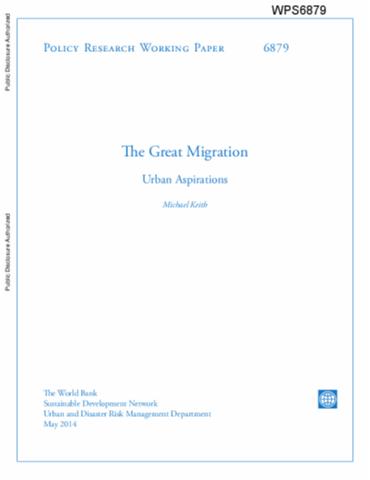Resource information
The great 21st-century migration into cities will present both a great challenge for humanity and a significant opportunity for global economic growth. This paper describes the diverse patterns that define this metropolitan migration. It then lays out a framework for understanding the costs and benefits of new arrivals through migration's externalities and the challenges and policy tradeoffs that confront city stakeholders. The paper concludes by suggesting ways municipalities, by optimizing flexibility, can make migration more productive and less destructive in shaping the 'good city' and the 'smart city.' There are few paths to global economic growth that do not run through cities, and even fewer that do not depend on growing the city in population size, scale, and economic exchange. Historically, cities have grown by concentrating the economic advantages of number and density, the social potential of innovation, and the cultural possibilities of newness. By bringing together the factors of production, land, labor, capital, and enterprise, in ever more recombinant forms, cities offer the possibility of securing new economic advantages and scaling them up.


